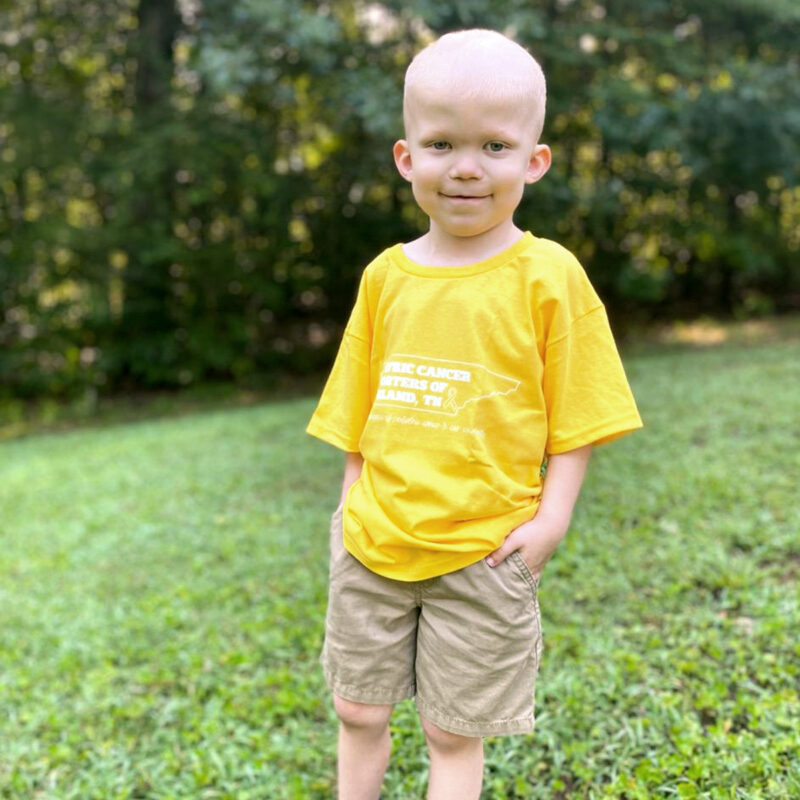When a family receives a cancer diagnosis, each member of that family is forced to adjust to a “new normal.” Future plans, former habits, and relationship dynamics all change – some permanently. The changes are overwhelming and difficult to cope with. Families will grieve for their former lives (before cancer) and each family member must find their own way to process the grief and move on with the changes in their lives.
Families may grieve a variety of losses: the loss of a daily routine, the loss of a previously healthy child, the financial impact of the diagnosis, and the impact of the diagnosis on other family members.
You might be familiar with Kubler-Ross’ five stages of grief:
- Denial
- Anger
- Bargaining
- Depression
- Acceptance
But those who have experienced grief know that it is rarely a linear process.
Kimarie Knowles, a Memorial Sloan Kettering bereavement counselor, uses the metaphor of grief as waves in the ocean. She says, “Part of what people find helpful is riding the wave. Understand that it’s coming up, try to find support, take care of yourself, and allow it to go.”
Everybody copes differently with loss. Grief experts Martin and Doka discuss different styles of grieving in our publication, The Other Side of the Mountain: A Parent’s Guide to Surviving Childhood Cancer. According to them, grievers can be intuitive or instrumental:
- Intuitive Grievers: These grievers may have more intense feelings and find it useful to express their feelings by sharing, crying, or talking to someone.
- Instrumental Grievers: These grievers may have less intense emotions. There may be a desire to pull back and not talk about their feelings. They may be more concerned about solving problems and gaining control of situations.
Some may prefer to take things as they come. Others may feel better by preparing themselves for what may come next. Either way, family members should find healthy and productive ways to cope with their grief.
Some practical ways to help cope may include talking to a professional or joining a support group in person or online. The NCCS provides a private online support group on Facebook where parents and survivors of childhood cancer can share their experiences and support one another as they navigate the changes cancer brings. Another tool may be to journal or find other ways of self-expression like art therapy or creative writing. Reading stories of others’ journeys with cancer may also help.
One of the most helpful things is to remember: you are not alone.
Elizabeth’s Grief Journey

Elizabeth and her family grieved the most over the loss of the daily activities they had prior to diagnosis: yard work, cooking meals, doing laundry, and eating at the kitchen table. “You don’t realize until your ‘normal’ life is stripped away that you’ve taken for granted the simple things of living in the comfort of your own home,” Elizabeth said. She learned to cope with the grief by writing, leaning on friends and family, joining support groups, and utilizing a counselor through St. Jude, who helped Elizabeth process things and learn the importance of self-care. “If I am not my best self, I will not be able to take the best care of my child,” she says.
Elizabeth’s experience helped her realize that she can adjust and grow. “I am stronger than I think and I can do hard things,” she said. She also learned who to count on and which relationships to let go of in order to make the best decisions for Lincoln. Elizabeth’s advice to other families grieving their lives before cancer is to accept that there is no “right” or “wrong” way to grieve. “Let yourself feel all the feelings,” said Elizabeth. “Don’t put a time frame on it. Personally, I don’t think we’ll ever get over or finish grieving the life we once had. Life is forever changed now. But life will go on, it will just look (and feel) very different.”
Elizabeth wrote a poem that expresses her thoughts on her grief titled Yesterday. Click here to read her poem.

